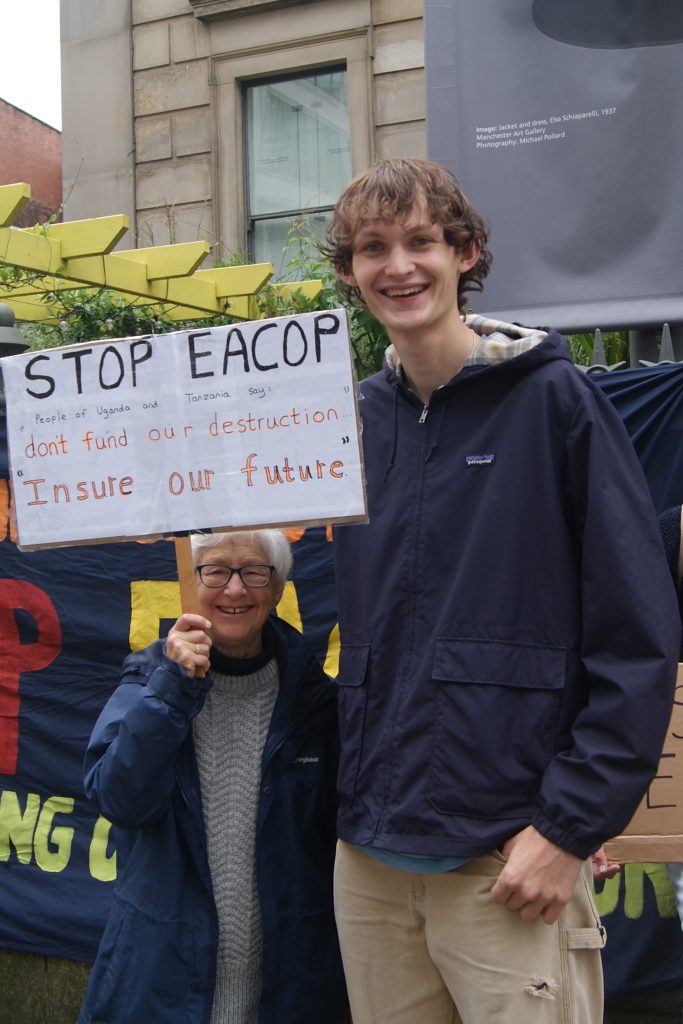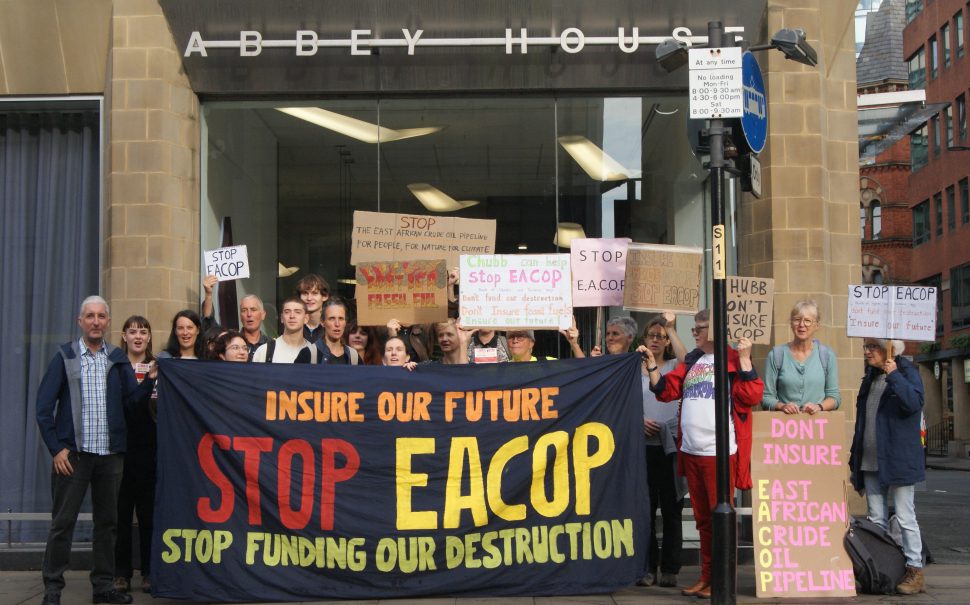Campaign group StopEACOP held a protest in Manchester over insurance company Chubb’s possible involvement in a planned oil pipeline in Tanzania and Uganda.
EACOP, the East Africa Crude Oil Pipeline, is a plan to move oil from the Lake Albert oilfields in Uganda to the port of Tanga in Tanzania for the oil to be sold onwards to global markets.

Problematically however, this plan requires significant insurance from firms across the world. In the context of climate change and a supposed decrease in the use of fossil fuels, these firms are put in a moral dilemma.
To date, 22 international firms including; AEGIS London, Zurich, Allianz and AXA, have actively declared that they will not be involved in insuring the pipeline. However, firms such as AIG and Chubb have declined to comment.
The organisation running the pipeline, which is set to be 1443km long running through East Africa, has declared that it ‘fully recognises its responsibilities both to environmental protection and the people, land and communities that will be impacted by the project’.
However, the development of a heated oil pipeline in the current environmental climate might seem particularly backward. Significant disruption to the area could undoubtedly have consequences, in both the short and long term.
This understanding has forced the StopEACOP group to take action.
Chubb, the US firm located on Mosley Street in Manchester city centre, has not given any indication to suggest that they will be helping insure the pipeline.
But given neighbours QBE, located across the road, have dismissed outright any participation, their silence speaks volumes.
Earlier today, the group gathered outside the Chubb offices, protesting the pipeline with banners, placards and recorded messages from those affected in East Africa by the works.

Local campaigner Martin Porter said: “The consequences of climate change are with us now and it’s only going to get worse… the International Energy Agency has said the age of fossil fuels is over. Continuing with this pipeline is now madness.”
Alongside the residents of Tanzania and Uganda affected by the construction of the pipeline, there are 40 million people who rely on Lake Victoria for water and food production – which would be at risk of any possible oil spills.
Abduh Twaib Magambo from Stop EACOP Uganda said the project is “fraught with perilous consequences”.
As well as the above issues, he warned of “putting in danger animal species in [the] Queen Elizabeth National Park… elephants, zebras, giraffes and many more”.
And StopEACOP have vowed to continue to fight on for the people of East Africa.
While Chubb has failed to comment on the issues, their website says the company “recognises our responsibility to provide solutions that help clients manage environmental risks, to reduce our own environmental impact and to make meaningful contributions to environmental causes”.
Also, not only are the environmental concerns signficicant, but the financial planning of the pipeline is fraught with problems.
China Dialogue noted earlier this month that EACOP “already has backing worth US$2billion from the oil companies behind it. However, another $3 billion of loans may be needed. The prospects for this 1,443km mega project have become clouded in financial uncertainty”.
For more information on EACOP click here.
Or for details on Stop EACOP’s case, you can access further information here.





Join the discussion
This was really good to read
I agree